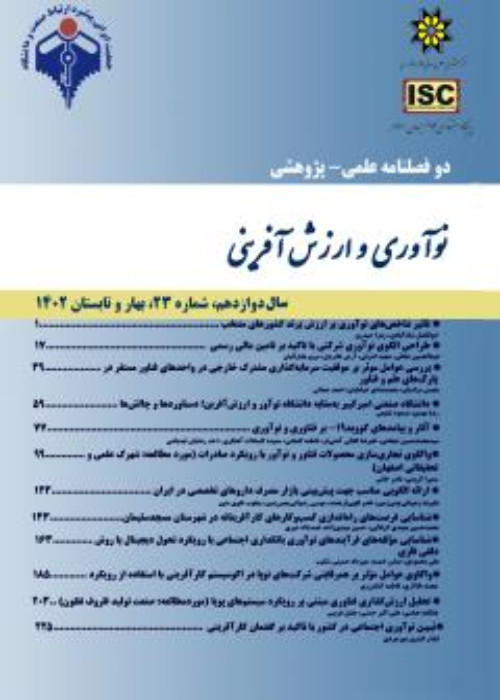Scenarios and Patterns of Future Higher Education in the Horizon of 1410
Researching the future, developing future scenarios, and providing requirements and solutions to face the future are essential responsibilities of policymakers, leaders, and planners of higher education. Various factors and drivers, especially information and communication technologies and digital developments, have transformed universities' role in shaping the more comprehensive higher education system. In this article, based on the study of Orr et al. (2020), five scenarios and models of higher education for 2010 are presented. These scenarios include Tamagotchi, Jenga, Lego, Transformer, and Garbage Can. The Tamagotchi model is a classic approach to higher education that begins immediately after high school, leads to a bachelor's or master's degree, leads to a job, and ends the path to higher education. The Jenga model is more attractive to non-traditional students in short-term learning courses and focuses on the following stages of self-learning and organization. The Lego model is named separate composite modules of different sizes that create a self-contained, non-standardized learning path rather than a compact unit. The Transformer model represents learners who may be extended past their primary education but return to higher education to gain new knowledge or upgrade needed skills. According to this model, everyone should have opportunities to leave their current career path and change it. In the Garbage Can scenario, learners choose a combination of Tamagotchi, Jenga, Lego, and Transformer scenarios according to their work-life situation and individual goals. Universities and educational institutions depend on the institutional mission and focal values. In this scenario, applicants and academic institutions will have multiple teaching-learning choices. Digital developments are technical innovation and social innovation, the consequences of which should be considered for society, the labor market, and the higher education systemThe Tamagotchi model is a classic approach to higher education that begins immediately after high school, leads to a bachelor's or master's degree, leads to a job, and ends the path to higher education. The Jenga model is more attractive to non-traditional students in short-term learning courses and focuses on the next stages of self-learning and organization. The LEGO model is named as separate composite modules of different sizes that create a self-contained, non-standardized learning path rather than a compact unit. The transformer model represents learners who may be long past their basic education, but return to higher education to gain new knowledge or upgrade needed skills. According to this model, everyone should have opportunities to leave their current career path and change it. In the Karbeijken scenario, learners choose a combination of Tamagotchi, Jenga, Lego, and Transformer scenarios according to their work-life situation and individual goals, and universities and educational institutions depending on the institutional mission and focal values..
- حق عضویت دریافتی صرف حمایت از نشریات عضو و نگهداری، تکمیل و توسعه مگیران میشود.
- پرداخت حق اشتراک و دانلود مقالات اجازه بازنشر آن در سایر رسانههای چاپی و دیجیتال را به کاربر نمیدهد.



